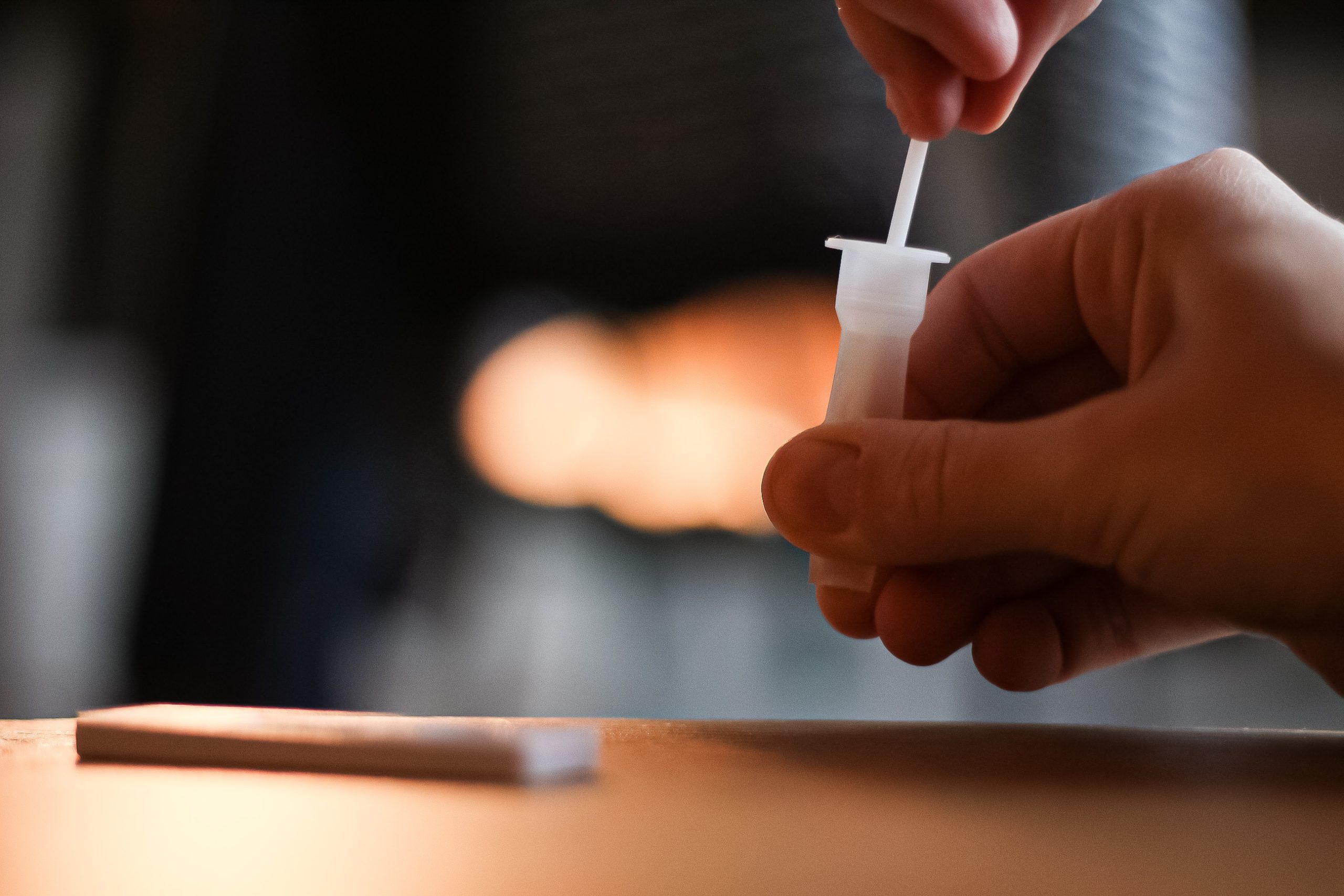Students and staff are no longer being advised to do a preventive self-test twice a week. This is one of the new relaxations that the government has announced.
For the time being, free self-tests remain available for the education sector. (Photo: Justyna Botor)
The omicron variant of the coronavirus is less virulent, so fewer people are ending up in hospital. The government therefore announced new relaxations on Tuesday 15 March.
Some things remain the same. If you have symptoms, stay at home and do a self-test. Anyone that has COVID-19 must remain in isolation for at least five days and may only go outside again 24 hours after the symptoms have disappeared.
Other recommendations
Other recommendations relate to things such as fresh air, sneezing into your elbow and vaccination. It is also still advisable to wear a face mask in busy places – but that is up to you to decide.
The recommendation to work from home lapses with immediate effect
The government will continue to provide self-tests free of charge in the education sector, for the use of students and staff if they have symptoms. “In principle, this is valid until 1 June”, Health Minister Ernst Kuipers writes.
But preventive self-testing is no longer needed – insofar as students and staff were still doing so. In November, it emerged that only three in ten students and six in ten staff members ordered self-tests.
The recommendation to work from home also lapses with immediate effect. The government hopes, however, that employers will put agreements in place with employees “to encourage hybrid working on a permanent basis”. To that end, the government asks for “extra attention to be given to employees who are concerned about their health”.
In an online update, TU Delft announces that it is working towards a ‘hybrid working environment’. “In the coming period, we will ask managers and employees to discuss the possibility of, and experiment with, hybrid working. Additional information about this will follow shortly.”
23 March
More relaxations will take effect in a week’s time. As from Wednesday 23 March you will no longer have to wear a face mask in public transport and the mandatory ‘testing for admittance’ to large events and nightlife venues will be scrapped.
HOP, Bas Belleman
Translation: Taalcentrum-VU
Do you have a question or comment about this article?
redactie@hogeronderwijspersbureau.nl


Comments are closed.